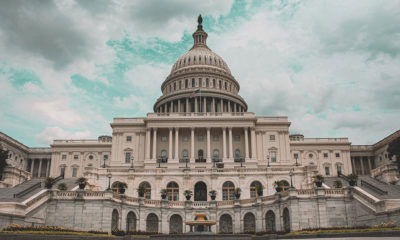With the new school year coming around, Senator Cory Booker, a Democrat from New Jersey, has introduced legislation that would “streamline” the student financial aid application process. Among its provisions is the elimination of drug convictions as a bar to federal financial aid.
At question is the document formally known as the Free Application for Federal Student Aid (FAFSA), which includes the following text: “Have you been convicted for the possession or sale of illegal drugs for an offense that occurred while you were receiving federal student aid (such as grants, work-study, or loans)?”
According to Booker’s press release, the Simplifying Financial Aid for Students Act of 2018 “would simplify the FAFSA form, making it more accessible and easier to complete for low-income students by greatly reducing the number of questions a student would need to answer if she or he is a recipient of a means-tested program…” A means-tested program is any government program intended to assist those whose incomes fall below a designated level.
The aim of the bill, which applies to both graduate and undergraduate students, is “to help more underserved students have access to financial aid and attend college.” It is being co-sponsored by Democratic senators Richard Blumenthal, Kirsten Gillibrand, Jeff Merkley, Doug Jones, Kamala Harris and Catherine Cortez Masto. So far, the bill has no Republican co-sponsors.
Statements by the sponsors only alluded to their proposed elimination of the drug-conviction provision — although it is arguably the bill’s most important measure.
“We know that when a student completes the federal financial aid form, he or she is more likely to receive aid, attend college and graduate from college,” Booker said in a press release. “But sadly, less than half of today’s high school students complete the form, and students from underserved backgrounds complete the form at even lower rates than their peers. We must make the process of obtaining aid for higher education easier. Our bill would simplify the complicated process in order to reduce barriers to higher learning for students from marginalized populations.”
A Question of Racial Equity
The Simplifying Financial Aid for Students Act of 2018 contains several provisions to remove obstacles to student aid, many of which help students from marginalized backgrounds. For example, it would automatically deem a student eligible for a “zero expected family contribution” determination if the student or their parents are recipients of means-tested programs and it would make DREAMers (undocumented immigrant youth who were raised in the United States) eligible for student aid.
And, of course, removing the requirement that students disclose prior drug convictions would help students of color, who have been disproportionately targeted by the War on Drugs.
According to a March report by Inside Higher Ed, federal Education Department statistics indicate that about 1,000 students each year lose full or partial access to federal student aid (called “Title IV aid” in reference to the relevant section of the 1965 Higher Education Act) because of a drug-related conviction.
Student advocacy organizations, however, argue those numbers don’t reflect how many students don’t even apply for aid because they assume they won’t qualify due to this provision.
“Our research has shown there’s a drastic deterrent and discouraging factor by the question even being on the FAFSA,” said Julie Ajinkya, vice president for applied research at the Institute for Higher Education Policy.
Speaking to Inside Higher Ed, Ajinkya emphasized that drug convictions disproportionately impact students of color — despite research indicating they use illegal drugs at rates comparable to their white peers. She said the denial of federal aid poses a “racial equity issue.”
The FAFSA’s Question No. 23, asking applicants about drug convictions, was added in 1998, when lawmakers moved to deny federal aid to students with drug-related convictions. The restriction applies whether an applicant was convicted of a felony or misdemeanor, whether the offense involved the sale or just possession and whether the conviction was under state or federal law. This provision bars or limits applicants from receiving Pell Grants, Supplemental Educational Opportunity Grants or Federal Work-Study, as well as federal student loans.
In the ensuing years, tens of thousands of students lost access to federal grants and loans annually. A 2005 Government Accountability Office report found that in the 2003-04 academic year, more than 41,000 FAFSA applicants were ineligible for aid due to this provision.
The provision was reformed in 2006, with the law changed to only deny Title IV funds to applicants convicted of a drug offense while actually receiving student aid. But Education Department figures indicate that thousands of students have continued to lose out on aid in the years since then. During the 2016-17 student aid cycle, 1,032 FAFSA applicants were deemed fully ineligible due to a drug-related conviction — or because they simply failed to answer the question. Another 254 received a partial eligibility suspension.
Booker’s bill now provides an opportunity to correct this injustice. However, getting it through a Republican-controlled Congress will certainly be a challenge.
TELL US, do you think drug convictions should bar access to student financial aid?


























